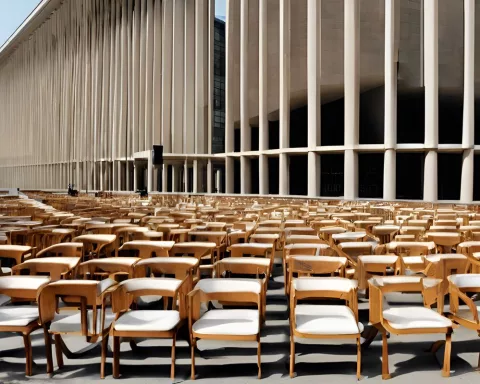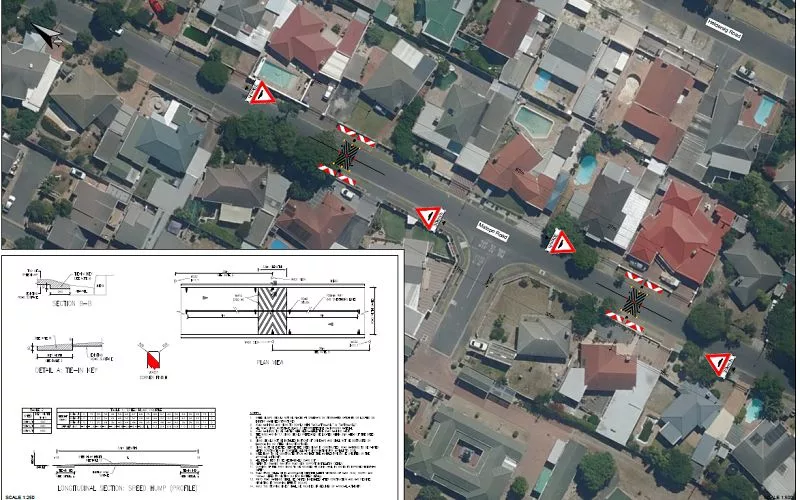Cape Town’s City Council is setting aside a whopping R4.8 billion to support impoverished residents and eligible pensioners as part of its proposed 2024/25 ‘Building for Jobs’ Budget. The system goes beyond financial aid and provides relief in rates and services, including free basic amenities like electricity and water. The budget also includes plans to invest in load-shedding protection, electrical grid upgrades, water and sanitation, safety and security, transport infrastructure, garbage collection, and Safe Space shelters.
Cape Town’s City Council has set aside R4.8 billion for the subsistence of impoverished residents and eligible pensioners in its proposed 2024/25 ‘Building for Jobs’ Budget. The social support system goes beyond financial aid and provides relief in rates and services too, including free basic amenities like electricity and water. The City has also increased the limit for rates rebates, potentially encompassing more pensioners and social grant beneficiaries. It has plans to invest in load-shedding protection, electrical grid upgrades, water and sanitation, safety and security, transport infrastructure, garbage collection, and Safe Space shelters.
Cape Town’s Pioneering Steps in Social Support
During an era of worldwide economic instability and spiraling living expenses, the Cape Town City Council takes a remarkable step forward in reinforcing its social safety net. The proposed 2024/25 ‘Building for Jobs’ Budget, now available for public scrutiny, sets aside an exceptional R4.8 billion for the subsistence of impoverished residents and eligible pensioners. This allotment signifies an impressive R1 billion increment from the fiscal year 2022/23, showcasing the City’s unwavering dedication towards the fragile populace.
In a call for citizen engagement, the City’s finance chief, Councillor Siseko Mbandezi, encourages inhabitants to examine the budget and provide their opinions. The populace can express their perspectives and recommendations through various avenues – email, telephonic conversation, or the City’s dedicated web page. Open dialogue and public participation are deemed crucial to paving the way for a fair and inclusive budget.
Multifaceted Social Support System and Expanded Social Relief Measures
The projected social support system is versatile and tailored to tackle diverse aspects of living conditions. It goes beyond financial aid, providing relief in rates and services too. Impressively, the City’s aid has touched more than 210,000 residents who are either indigent or pensioners.
The City’s provision for free basic amenities like electricity and water is applauded as the country’s most generous, a fact recently endorsed by StatsSA’s Non-Financial Census of Municipalities. The City grants the maximum quota of free water at 15kl, free sanitation at 10.5kl, and up to 60 kWh of free electricity units, standing out as one of the most benevolent metros, linking social relief to property value.
To widen the scope of social relief, the City has elevated the limit for rates rebates. The upper qualifying threshold has been increased from R17,500 to R22,000 in total monthly household income from the fiscal year 2023/24. This amendment could potentially encompass more pensioners and social grant beneficiaries.
Comprehensive Approach to Urban Development and Infrastructure Enhancement
Beyond social support, the ‘Building for Jobs’ Budget presents an all-inclusive perspective on urban development. It earmarks R480 million for a four-phase load-shedding protection strategy by 2026/27 and R4 billion for electrical grid upgrades, inclusive of R680 million dedicated to making service delivery immune to load-shedding over a three-year span.
Water and sanitation are set to receive a massive boost with a proposed investment of R5.3 billion. The City’s focus also extends to safety and security with an overall investment of R5.5 billion, inclusive of 1,000 metro police apprenticeships and R610 million set aside for technological advancements such as CCTV, drones, dash, and bodycams.
Committed to improving the city’s transport infrastructure, the budget designates R6.3 billion for a significant expansion of MyCiTi towards south-east over a period of three years. Road users can anticipate better roads with R826 million allocated for road and pothole mends.
Prioritizing Sanitation and Addressing Homelessness
Moreover, the City has plans to invest R580 million in new garbage collection trucks and equipment. It has also set aside R220 million for Safe Space shelters, underlining its resolve to tackle homelessness.
In conclusion, I strongly urge residents to leverage this opportunity and play an active role in sculpting the City’s budget. Your voice and standpoint are of utmost importance. Explore online platforms to acquaint yourself with the budget, leave comments, and apply for the various social support provisions on offer. Collectively, we can build a city that is both inclusive and prosperous.
1. What is Cape Town’s proposed 2024/25 ‘Building for Jobs’ Budget?
Cape Town’s City Council has proposed the ‘Building for Jobs’ Budget, which sets aside R4.8 billion to support impoverished residents and eligible pensioners. The system goes beyond financial aid and provides relief in rates and services, including free basic amenities like electricity and water.
2. How can residents provide their opinions on the ‘Building for Jobs’ Budget?
The finance chief, Councillor Siseko Mbandezi, encourages inhabitants to examine the budget and provide their opinions. The populace can express their perspectives and recommendations through various avenues – email, telephonic conversation, or the City’s dedicated web page.
3. How does Cape Town provide social relief beyond financial aid?
Cape Town’s social support system goes beyond financial aid and provides relief in rates and services, including free basic amenities like electricity and water. The City grants the maximum quota of free water at 15kl, free sanitation at 10.5kl, and up to 60 kWh of free electricity units.
4. What other aspects of urban development are covered in the ‘Building for Jobs’ Budget?
The ‘Building for Jobs’ Budget presents an all-inclusive perspective on urban development and earmarks funds for load-shedding protection, electrical grid upgrades, water and sanitation, safety and security, transport infrastructure, garbage collection, and Safe Space shelters.
5. How does Cape Town plan to tackle homelessness?
The City has set aside R220 million for Safe Space shelters, underlining its resolve to tackle homelessness.
6. How can residents benefit from the social support provisions on offer?
Residents can explore online platforms to acquaint themselves with the budget, leave comments, and apply for the various social support provisions on offer. The City has also increased the limit for rates rebates, potentially encompassing more pensioners and social grant beneficiaries.












